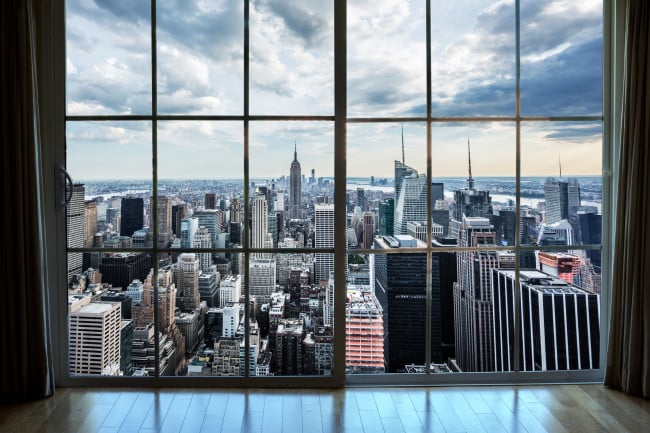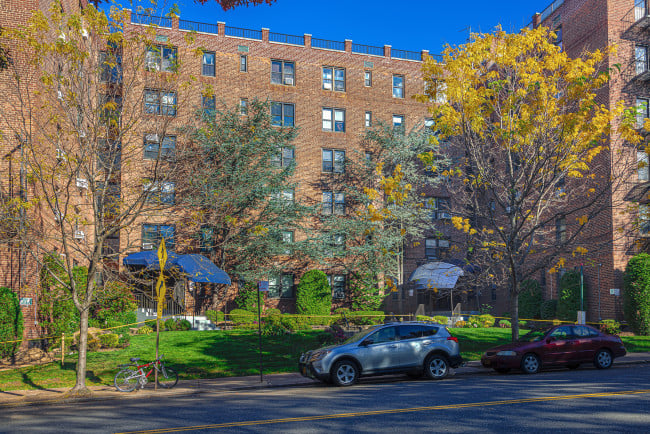Rise of all-cash deals in NYC reshapes the real estate market
- 60 percent of Manhattan deals were all cash, highest share citywide, as per PropertyShark
- In the Bronx and Queens, buyers with financing paid higher median prices than cash buyers

Cash buyers “operate strategically” at the top and bottom of the NYC residential market, competing for luxury properties or scooping up low-cost investments, often via LLCs.
iStock
Paying all cash is not just a way for buyers to show off how wealthy they are, it is part of a trend that is reshaping the New York City real estate market.
While cash buyers represent half of all buyers in NYC, cash deals are concentrated in Manhattan, home to more than one third of all residential transactions in the city. In the first five months of 2025, 60 percent of all Manhattan deals closed without financing, the highest share citywide, according to a new study from PropertyShark that looks at buyer profiles.
NYC is home to the most millionaires in the world—nearly 400,000, according to investment advisory firm Henley & Partners—but the growing number of all-cash deals is about more than just income. “They signal intent, identity, and access,” said Eliza Theiss, author of the PropertyShark report.
In practice, many buyers who pay all cash will refinance after they close, known as delayed financing, but their access to liquidity puts them in a different category from buyers who must take out a mortgage to close the deal.
Theiss wrote that Manhattan’s share of cash deals matters “because it illustrates how concentrated wealth and liquidity can reshape ownership patterns.”
The two types of buyers have implications for how the properties are used. Cash buyers are usually investors or high-net-worth individuals “looking for speed and negotiating power. Mortgage-backed buyers are typically end users: First-time buyers, families or long-term residents purchasing primary homes rather than investment properties,” she said.
Cash deals surge in Manhattan
The percentage of Manhattan residential real estate deals involving cash buyers surged to a record-high in the second quarter, according to the latest edition of the Elliman Report, which covers Manhattan co-op and condo sales.
Compass’s second quarter Manhattan sales market report said cash buyers and investors, fueled in part by generational wealth transfers, are driving momentum at the high-end of the market.
High-end buyers will be “enormous beneficiaries of the revised tax laws, massive wealth creation over the past five years, [and] redistribution of generational wealth,” Leonard Steinberg, chief evangelist at Compass, previously said. This group includes “many suburban empty nesters, and national buyers—especially from California—seeking large apartments with full services and amenities.”
Manhattan vs. the outer boroughs
Cash deals appear to be driving prices up in Manhattan, where the median sales price for cash sales was $1.25 million, $215,000 higher than mortgage-backed sales.
The gap is even larger in competitive neighborhoods like the West Village, which saw a median cash price of $2.27 million, $462,000 above the neighborhood’s overall median price. In Hudson Yards, the gap was nearly $2 million. It was a similar story in Tribeca, Chelsea and Prospect Heights.
But cash deals are not having the same impact in the Bronx and Queens, the study found.
In the Bronx and Queens, mortgage deals achieved higher prices, “signaling that most of these buyers are looking to become residents and less so investors,” Theiss wrote. The median sales price for Bronx buyers seeking financing was $377,000 compared to $270,000 for cash.
However, the Bronx was the second-most cash-dependent market after Manhattan, with 40 percent of properties sold without financing. This likely reflects investor activity in its lower price tiers, Theiss said.
This duality is due to cash buyers who “operate strategically” at the top and bottom of the NYC residential market, competing for luxury properties or scooping up low-cost investments, often via LLCs, she said. LLCs accounted for 11.35 percent of all NYC home purchases in 2025—a small but influential share. Manhattan has the largest share of buyers using LLCs—nearly half of all sales citywide.
New state law curbs institutional investors
Cash buyers can include institutional investors, who Governor Kathy Hochul targeted as part of her 2026 budget. The problem, as a statement from her office framed it: Large investors that hold a disproportionate share of a local housing market remove opportunities for homeownership, exacerbate scarcity, and drive up prices.
She signed new legislation in May creating a 90-day waiting period for institutional investors to make an offer on one- or two-family homes, with the goal of helping level the playing field for consumers looking to buy a property. A waiting period takes away one of the advantages of paying cash, which is a speedy close.
The new law applies to entities that own 10-plus single- and two-family homes and exempts nonprofits, land banks, community land trusts, and foreclosure sales. With the New York State Attorney General’s enforcement, entities that violate the waiting period would face $250,000 penalties.
You Might Also Like





























